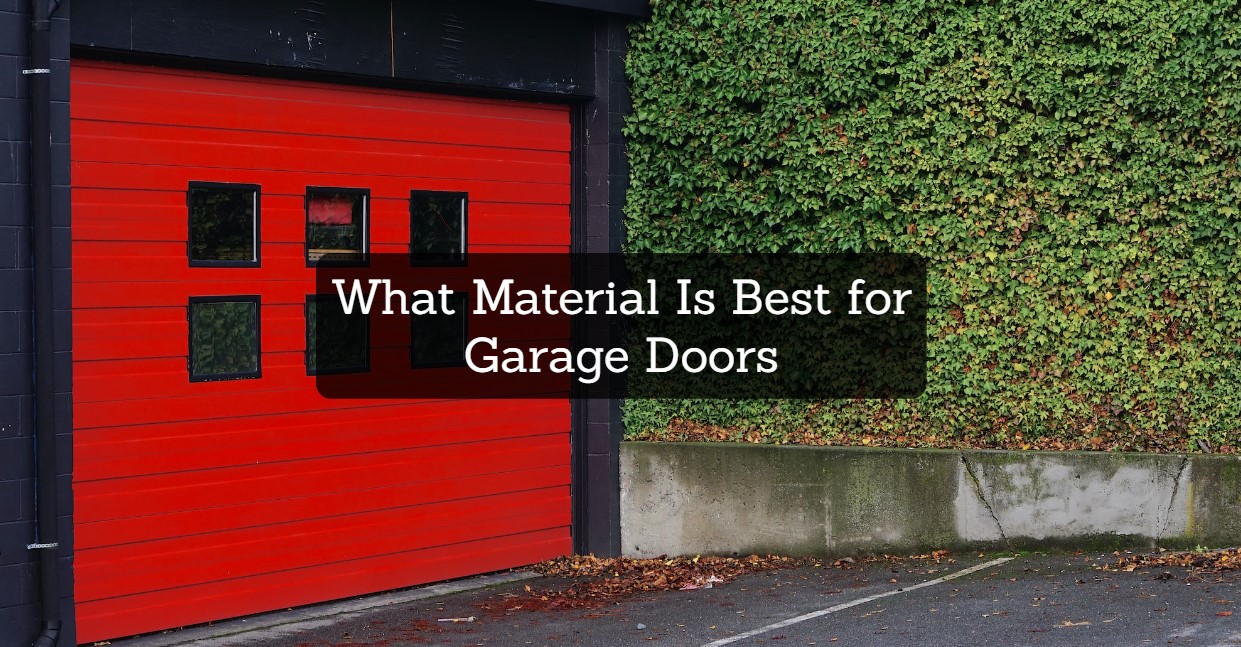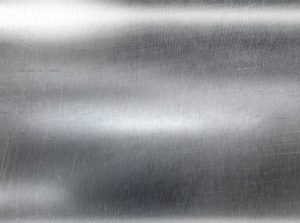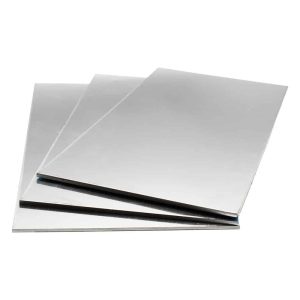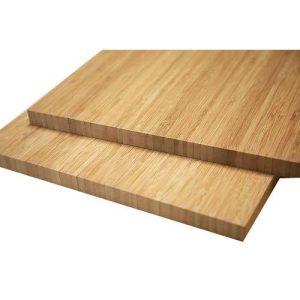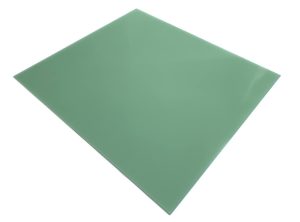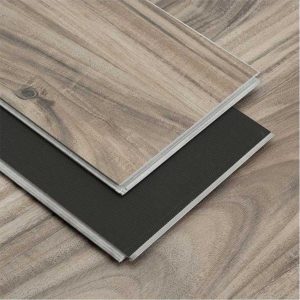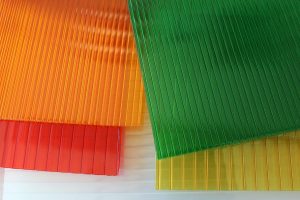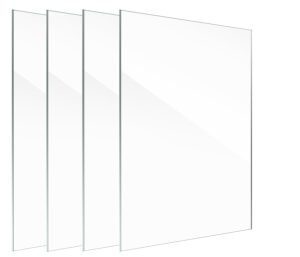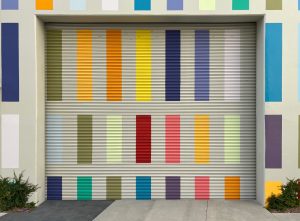Forget ordinary doors, let’s talk about the gateway to your automotive kingdom, the guardian of tools and treasures – the garage door! But when it comes time to replace this trusty sentinel, options can turn into a dizzying maze. Steel, wood, aluminum, fiberglass – each whispers promises and hides secrets.
Fear not, gearheads! We’re here to navigate the material melee and crown the champion for your garage. Before we unleash the material monsters, let’s remember the unsung hero – the opener. Choosing the right one (check out our Best Garage Door Openers guide!) is key to smooth operation and garage domination.
This guide will rip off the masks of each material, revealing the perfect match for your unique needs and desires. So, buckle up, gearheads, and let’s dive into the garage door arena!
1. Steel: The Tried-and-True Titan
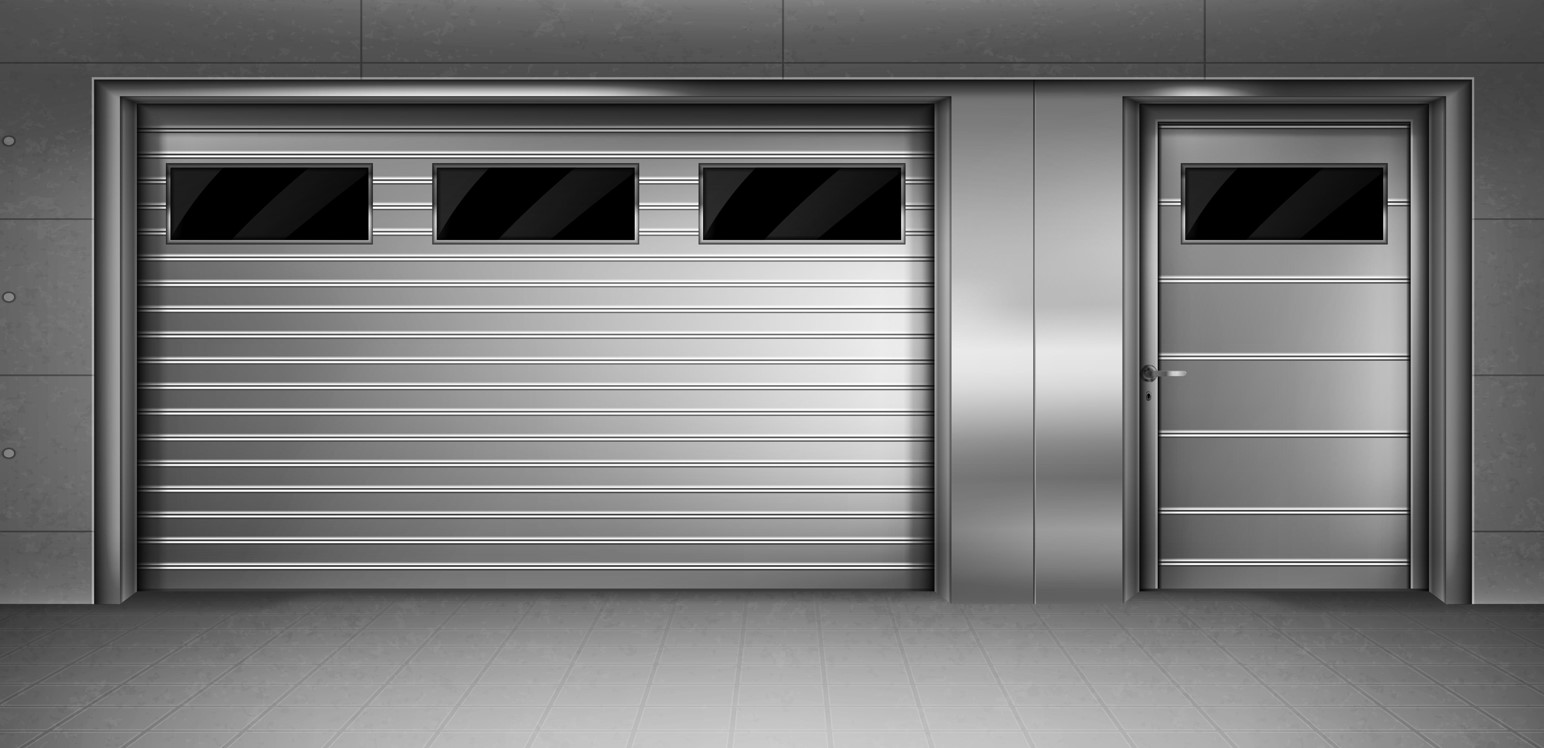
Steel reigns supreme in the arena of garage door durability. Think fortress walls, not flimsy cardboard – this material shrugs off dents and dings like a knight deflecting arrows. Budget warriors, rejoice! Steel’s affordability makes it a champion for your wallet.
Whether you crave the timeless elegance of raised panels or the cool minimalism of smooth surfaces, steel offers a style for every driveway. And the cherry on top? A custom paint job that makes your garage door the star of the curb.
Pros of Steel Garage Doors:
- Durability: Can handle heavy use and harsh weather conditions.
- Affordability: Generally less expensive than other materials like wood or fiberglass.
- Low maintenance: Requires minimal upkeep, just occasional cleaning and lubrication.
- Versatility: Available in a wide range of styles and colors.
- Security: This can be reinforced with additional features for enhanced protection.
Cons of Steel Garage Doors:
- Weight: Can be heavy to operate, especially for older models.
- Rust: Susceptible to rust if not properly coated or maintained.
- Denting: Can dent on impact, though higher gauge steel is more resistant.
- Insulation: Not as insulating as some other materials, which can lead to higher energy bills in extreme temperatures.
- Noise: Can be noisy when opening and closing.
You may also like: Best Garage Door Insulation Kits
2. Aluminum: The Lightweight Contender
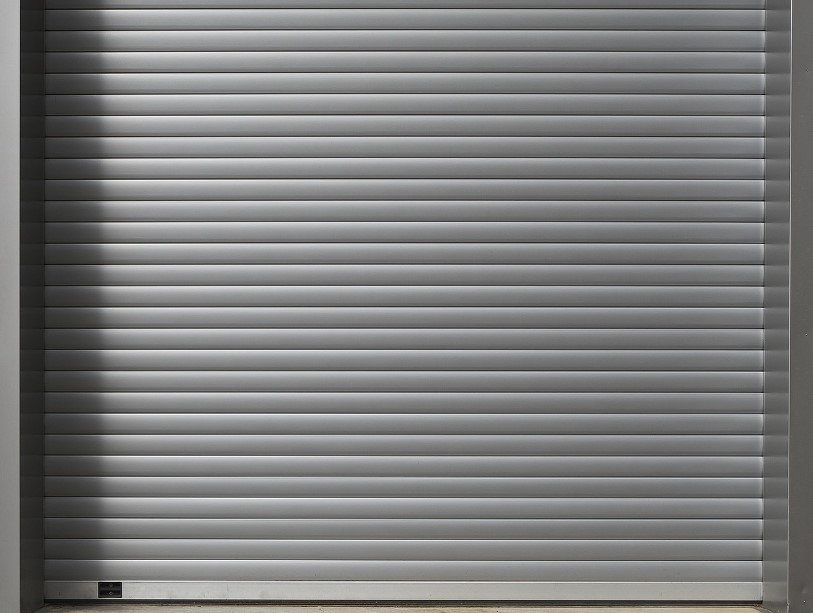
Craving a sleek, modern entrance for your automotive kingdom? Aluminum steps right up, offering a lightweight, stylish package. Bonus points for its rust-resistant armor and humidity-defying shield. However, when it comes to brawling with heavy objects or daily roughhousing, remember, that aluminum prefers finesse over brute force.
Pros of Aluminum Garage Doors:
- Lightweight: Easier to operate than steel doors.
- Rust and corrosion-resistant: Requires minimal maintenance.
- Modern look: Available in a variety of contemporary styles and finishes.
- Low maintenance: Doesn’t require painting or regular upkeep.
Cons of Aluminum Garage Doors:
- Denting: More susceptible to dents than steel, especially thinner gauges.
- Cost: Can be more expensive than steel, especially for thicker gauges.
- Insulation: Not as insulating as steel or wood, which can lead to higher energy bills.
- Security: It may not be as secure as steel doors, especially against forced entry attempts.
You may also like: Steel vs Aluminum Garage Doors (Comparison)
3. Wood: The Classic Charmer
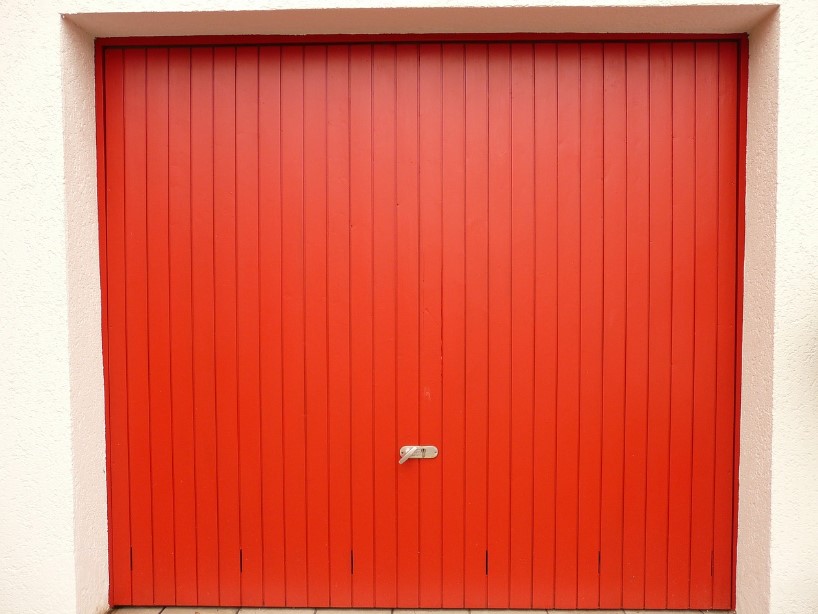
Wood whispers stories on the wind, and garage doors crafted from its soul sing a serenade of rustic charm. They wear nature’s finest coat, aging like good wine, adding warmth and grace to any home.
These guardians of your automotive dreams hug summer heat away and hold winter’s chill at bay, cocooning your treasures in natural insulation. But remember, like a trusted steed, they need your gentle care – a brush of paint, a caress of stain, to keep their beauty singing through the years.
Pros of Wood Garage Doors:
- Beauty: Adds a natural and elegant touch to your home’s exterior.
- Insulation: Excellent insulator, keeping your garage comfortable year-round.
- Customization: Can be painted or stained to match your home’s style.
- Durability: This can last for many years with proper care and maintenance.
Cons of Wood Garage Doors:
- Maintenance: Requires regular painting or staining to prevent rot and warping.
- Cost: Can be the most expensive garage door material.
- Weight: Can be heavy to operate, especially for larger doors.
- Susceptibility to damage: More vulnerable to rot, warping, and insect damage than other materials.
4. Fiberglass: The Low-Maintenance Up-and-Comer

Move over, metal and wood, the future of garage doors is here, and it’s made of fiberglass. This rising star blends steel’s toughness with vinyl’s chill, creating a low-maintenance warrior that laughs at dents and shrugs off fading. Craving wood’s rustic charm? Fiberglass mimics it flawlessly, whispering secrets of hidden textures.
And the best part? The insulation you can rely on, keeping your garage a haven of comfortable temperatures. Welcome to the future of effortless style, where heroes wear fiberglass and keep your car kingdom happy.
Pros of Fiberglass Garage Doors:
- Low maintenance: Requires minimal upkeep beyond occasional cleaning.
- Durability: Resistant to dents, scratches, fading, and rust.
- Versatility: Available in a variety of styles and textures, including wood-like finishes.
- Insulation: Offers good insulation properties, helping to keep your garage comfortable year-round.
- Cost: More affordable than wood, though generally more expensive than steel or aluminum.
Cons of Fiberglass Garage Doors:
- Strength: Not as strong as steel, so may not be ideal for areas with high winds or hail.
- Repairs: This can be more difficult and expensive to repair than other materials.
- Weight: Can be heavier than aluminum, but lighter than steel.
You may also like: Best Garage Alarm Systems
Beyond the Big Four: Exploring Niche Options
Now, if you’re a homeowner who likes to think outside the box, there are a few other garage door materials worth considering:
- Vinyl: Affordable and low-maintenance, but not as durable as other options.
- Recycled Plastic: Eco-friendly choice with good durability, but limited style options.
- Glass: Creates a stunning, modern look, but offers little insulation and privacy.
- Custom Materials: Wood and metal can be combined to create unique and artistic garage doors.
You may also like: Best Wood Look Paint for Garage Doors
5. Vinyl: The Affordable and Low-Maintenance Contender
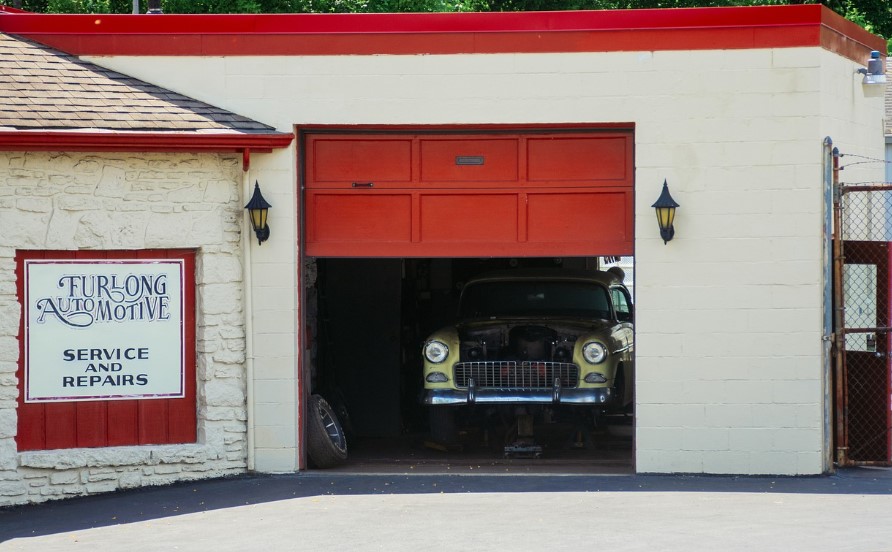
Here are some unique ways to rewrite the text about vinyl garage doors:
1. Embrace the casual charm:
Vinyl, the laid-back lounge lizard of the garage door world, says “chillax” to both your wallet and your maintenance schedule. Affordability is its middle name, and low-maintenance its superpower. Think of it as the sweatpants of your driveway – comfy, practical, and always ready for action. But don’t mistake its casual vibe for boring – vinyl comes in a kaleidoscope of colors and textures, even wood-grain whispers if you crave rustic charm. So, kick back, relax, and let vinyl do its budget-friendly magic on your garage door.
2. Use playful metaphors and personification:
Vinyl, the chameleon of the garage door family, blends affordability with low maintenance like a ninja blends into the shadows. It won’t bite your wallet or nag you for paint jobs – think of it as the zen master of driveway entrances.
But don’t be fooled by its chill exterior – vinyl hides a playful side, offering a rainbow of colors and textures, even wood-grain disguises for those who crave nature’s whispers. So, let vinyl channel its inner fashionista and dress up your garage door without breaking the bank.
Pros:
- Affordable: Budget-friendly option compared to wood, steel, and other materials.
- Low Maintenance: Requires minimal upkeep – just an occasional hosing down will keep it looking spiffy.
- Versatile: Available in a range of colors and textures, including wood-grain finishes.
Cons:
- Not as Durable: Can crack or dent more easily than steel or aluminum.
- Fades in Sunlight: May lose its vibrant color over time, especially in harsh sunlight.
- Limited Insulation: Provides minimal insulation, so your garage might get hot in the summer and cold in the winter.
6. Recycled Plastic: The Eco-Friendly Warrior with a Style Scarcity
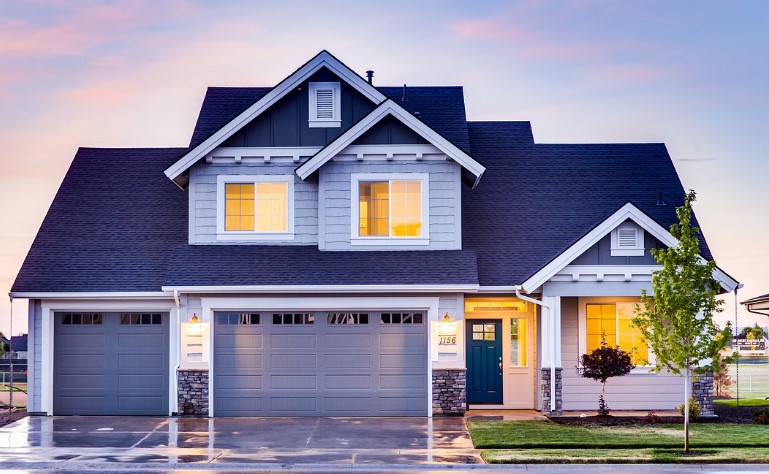
Ever felt helpless against landfills overflowing with plastic? Now’s your chance to fight back! Recycled plastic garage doors are the superheroes of sustainability, taking discarded bottles and transforming them into durable, modern guardians of your automotive kingdom.
These eco-warriors don’t wear capes, they wear sleek finishes that elevate your curb appeal while giving your environmental conscience a standing ovation. So, unleash the plastic power and let your garage door become a beacon of sustainability, one recycled bottle at a time.
Pros:
- Eco-Friendly: Made from recycled materials, reducing your environmental footprint.
- Durable: Surprisingly strong and weather-resistant, able to withstand harsh conditions.
- Low Maintenance: Requires minimal upkeep, just like vinyl.
Cons:
- Limited Style Options: Mainly available in smooth, modern finishes, not ideal for traditional homes.
- Can Be Expensive: While more affordable than wood, recycled plastic can be costlier than vinyl or aluminum.
- Unknown Long-Term Performance: Recycled plastic is a relatively new material for garage doors, so its long-term performance is still being evaluated.
7. Glass: The Modern Marvel with Privacy Concerns
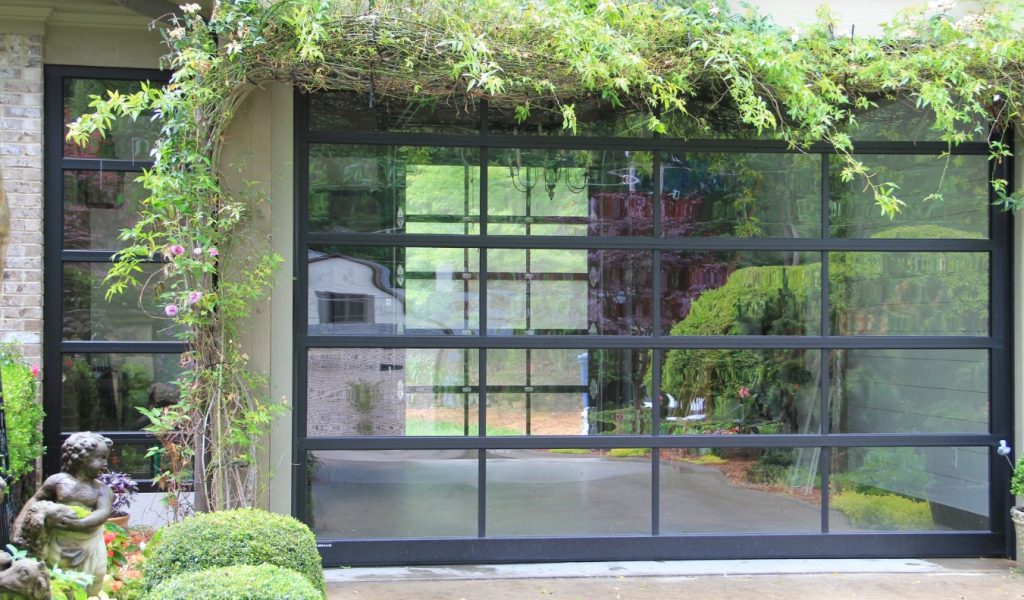
Forget brick walls and closed curtains – glass garage doors throw open the stage, inviting sunlight and onlookers to witness your automotive dreams. They’re architectural showstoppers, transforming your garage into a sun-kissed oasis (well, except for the prying eyes of the neighborhood).
But remember, transparency comes with a price – privacy vanishes faster than a soap bubble, and insulation takes a winter hibernation when glass takes center stage. So, embrace the open-air charm, but prepare for neighborhood paparazzi and seasonal temperature extremes.
Pros:
- Stunning Aesthetic: Creates a modern, open look that enhances your home’s curb appeal.
- Natural Light: Floods your garage with natural light, making it feel more spacious and inviting.
- Unique Material Choice: Stands out from the crowd and makes a statement.
Cons:
- Privacy Concerns: Offers minimal privacy, exposing your garage and its contents to the outside world.
- Poor Insulation: Provides little protection from heat and cold, making your garage uncomfortable in extreme temperatures.
- Safety Precautions: Requires additional safety measures like frosted glass or curtains to prevent accidents.
8. Custom Materials: Where Art Meets Function

Who says garages can’t be fashion icons? Custom materials are the haute couture of the driveway, ditching mass-produced mediocrity for bespoke brilliance. Imagine reclaimed wood, weathered and wise, sharing stories with sleek, metallic threads, or stained glass panels, vibrant and alive, dancing against a timeless wooden frame.
No more cookie-cutter conformity – custom materials let you unleash your inner designer and craft a garage door that’s as unique as you are, stopping traffic and igniting conversations along the way.
Pros:
- Unmatched Uniqueness: Craft a garage door that stands out from the crowd and sparks conversation.
- High-Quality Materials: Combine premium elements like wood, metal, or even glass for exceptional durability and lasting beauty.
- Increased Home Value: A well-designed custom garage door can be a significant investment that adds value to your property.
- Endless Customization: Let your imagination run wild! Experiment with textures, colors, and materials to create a truly bespoke masterpiece.
Cons:
- High Cost: Custom materials come at a premium price, often significantly more expensive than standard options.
- Maintenance Intensive: Depending on the materials used, upkeep can be more demanding than with low-maintenance choices like vinyl or aluminum.
- Professional Installation: Complex designs may require expertise for proper installation, adding to the overall cost.
- Potential Planning Restrictions: Some neighborhoods might have regulations regarding custom garage door designs, so check before you unleash your inner artist.
You may also like: Garage Doors Types (Pros & Cons Comparison)
The Verdict: It Depends on Your Priorities
Ultimately, the best garage door material for you depends on your individual needs and priorities. Consider factors such as your budget, climate, desired style, and how much maintenance you’re willing to do.
Here’s a quick cheat sheet to help you decide:
- Best for Durability: Steel
- Best for Low Maintenance: Aluminum or Fiberglass
- Best for Insulation: Wood
- Best for Modern Style: Aluminum or Fiberglass
- Best for Classic Charm: Wood
- Best for Eco-Friendliness: Recycled Plastic
Bonus Tip: Don’t forget to factor in the cost of installation when making your decision. Some materials may be more expensive to install than others.
I hope this guide has helped you narrow your choices and find the perfect garage door material for your home. Remember, the most important thing is to choose a door that you love and that fits your needs and budget.
Happy garaging!

